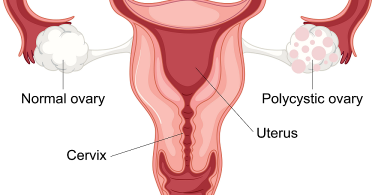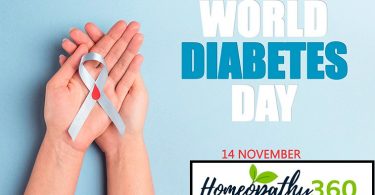
Abstract:
OCD is the mental disorder with fear & anxiety accompanied with compulsive behaviour & thoughts . It would be any it is easily treated with the great effect of Homoeopathic medicine in it .
Keywords:
Obsessive compulsive disorder, Mental symptoms,
Introduction:
Obsessive-compulsive disorder (OCD) is typified by compulsive behaviours and obsessive thoughts that interfere with day-to-day functioning. The OCD sufferer exhibits intense anxiety and terror, as well as mental aggression.
When someone is obsessed, thoughts of hand washing, terror, and weird things start to cross their mind. Compulsion refers to a person’s behaviour that follows obsessional thinking.
Obsessive-compulsive disorder (OCD) is typified by compulsive actions and obsessive thoughts that interfere with day-to-day functioning. Fears of infection and germs are prevalent, and so
are the urges to count activities, wash your hands frequently, and repeatedly verify that things like doors are secured.
Facts:
The numbers in India are similar –according to the National Health Portal of India, the lifetime prevalence of OCD in the general population is 2-3%, across men and women equally.
OCD affects approximately 1% of the global population. This may seem like a small number, but it actually equates to around 70 million individuals worldwide.
Aetiology:
Exactly not known but 2 theories are discussed .
OCD Is usually characterised by traits of perfectionism, rigidity and conscientiousness. Organic brain disease has been implicated in the light of occurrence of obsessional symptoms after the outbreaks of encephalitis lethargica. There is no evidence of cerebral disease in the vast majority of cases.
Clinical Features:
There are 3 subtypes of OCD
- Predominantly Obsessive thoughts
- Predominantly compulsive behaviours
- Mixed obsessive & compulsion
Obsessive compulsive disorder and depression are frequently linked. Major moderate depression affects at least half of OCD sufferers, according to estimates. Premorbid depressive or obsessional episodes are rare, but many others are more common than in the general population. Literature may copy animatic personality disorder or “traits” through admixtures. Compared to pure syndromes, four clinical syndromes have become more prevalent.
There are 4 main clinical syndromes ..
- Washers –
This kind is the most prevalent. The obsession in this place is contamination by grime, bacteria, human waste, and the like. Hand washing is the spread, or the entire repeatedly during the day
- Checkers –
There are numerous questions, the gas has been left open, the money was not precisely counted, etc.
Naturally, there is a constant need to confirm in order to dispel any doubts. Anxiety grows with every attempt to cease monitoring. Before one doubt is answered, more might surface.
- Primary Obsessive Slowness
Extremely uncommon syndrome, it is typified by substantial compulsive behaviours and/or obsessive
concepts in the comparatively lack of anxiety symptoms. This causes noticeable aits. Inertia in routine tasks 4. Pure obsession
Only obsessions, not compulsive behaviours, are observed. Typically, the content is violent or sexual in character. Instead of using behavioural habits to ease the anguish these obsessions cause, counter thoughts like counting are used. An alternative is compulsive
rumination, or fixation on thoughts.
Homeopathic approach:
There are many remedies for OCD in the Homoeopathy system of medicine.
Repertarisations –
Insanity – arsenic album, argentum nit, carc, puls, phosphorus, thuja
Fear of touch -aco, ang, ant crud, arn, chamomilla, nux vom, colchi, tell, tarent, belladonna,
Fear of dirt – Ars, carc, thuja
Restlessness- acon, ars, argn, bell, camp hora, carc, lyco, med, puls, rhus tox, stramonium, tarent, sulphur,
Lack of confidence-anac, aur, bar c, bry, kalip, mex, sil, nux v, psor, staph, arg.n,
Irritable-ant c, terent, kalic, lach
Therapeutic –
- Arsenic album –
restlessness, Want a things neat & clean, The horse is an extremely tense animal that is always on the go . Excessive restlessness, fast weight loss, coldness and absence of vital heat, severe fear of dying, and overnight aggravations, particularly after midnight and 2 am to 4 am One of the main traits of arsenic is restlessness.
- Lycopodium –
Indecision , loss of self confidence, poor self esteem , fear of public speaking , melancholic , afraid to be alone , awakes , weak memory, stage -fright . Aggravated in 4 to 8 PM . anxiety as if about to die.
depressed, and nervous. Conceited and obstinate while ill. Finding faults and domination
- Argentum Nitricumm
Believes he will fail at a particular point. strange mental inclinations. Impulse to leap out of a window or while crossing a bridge. Impulsive, eager to get things done quickly. Fears, worries, and underlying, illogical reasons for behaviour. Dreadful and terrifying experiences. Fear of crowds . Restlessness . Fear that death is nearing. Fear of going in a crowd, church or cinema or in a stuffy room where he cannot breathe.
- Thuja:
Believes his blood is tainted or contaminated. Reticent, a s if an unfamiliar individual were beside him, as if spirit and body were distinct, as if there was life within his belly. Flustered, ill-humoured , speaks quickly, and swallows words. Full of unspoken intentions. Sorrow. Dislike of life. Mental lassitude. Unable to focus. Speech is sluggish and word-searching. Maintains self-control around physicians and strangers. Excessively happy, furious, or nervous over trifles. Reticence. Postpartum depression. September. Makes a circle while
- Calcarea carb
Anxiety with palpitations. Want to cry and return home. Doubting. Spends the whole day sitting, breaking sticks, etc. Youngsters have strong wills. Obstinate. Every thing a child sees makes it fearful. Nightmares and restless night. Angry, cries over insignificant things, and borrows trouble . mice in delirium. She feels as though she would scream and rush up and down
References
- Harrison’s principles of internal medicine , 20rh edition. 2. Textbook of medicine for MBBS by Dr S N Chugh , 4th edition.
- APT Textbook of medicine by Sandhya a Kamath , 8th edition.
- Psychiatry And Homoeopathy by Fernando Risquez 1st edition.
- Textbook of medicine with Homoeopathic therapeutic. 6. Lotus Materia Medica by Robin Murphy , 2nd revised edition.
- Homoeopathic medical repertory , 2nd revised edition.





